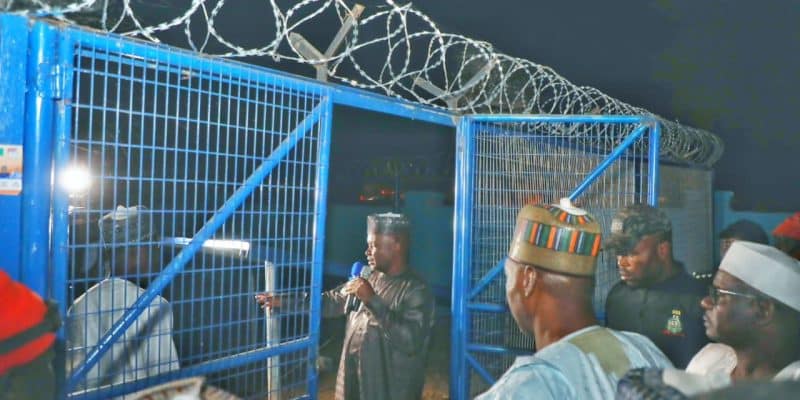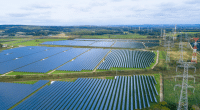Since 30 January 2023, a new drinking water supply system has improved the service to 40,000 people in Chibok, Borno State, Nigeria. It is one of the symbols of the rebirth of this town after several years of exactions by the terrorist group Boko Haram.
In Nigeria’s Borno State, 40,000 people are now supplied with a new drinking water supply system. The water system in the village of Mboa, five kilometres from the town of Chibok, has just been inaugurated by Babagana Umara Zulum, the governor of Borno.
The aim is to strengthen the supply of drinking water in this Nigerian state, which is facing water stress. The water supply system consists of 20 motorised boreholes that work in conjunction with a 36 kWp solar photovoltaic system and a 100 KVA generator.
Water pumped from the groundwater table is stored in two tanks, above ground and above ground. The above-ground tank has a storage capacity of 750 m3 of drinking water. The second installation has a capacity of 500 m3.
Towards achieving MDG 6
By completing this project, the Borno State Government is supporting the Federal Government of Nigeria in its efforts to achieve universal access to safe drinking water by 2030. According to the World Bank, about 60 million people still live without access to basic drinking water services in Nigeria.
Read also –
In August 2022, the country published its roadmap for the coming years, including water and sanitation. It is entitled “National Guidelines for Water, Sanitation and Hygiene in Health Facilities”. The challenge is to increase access to these essential services. “This will be achieved through the provision of new facilities and water, sanitation and hygiene systems as an effective strategy for the prevention and control of infectious diseases,” explained Osagie Ehanire, Nigeria’s Minister of Health, in August 2022. In Nigeria, 80 million people still do not have access to improved sanitation facilities, and 167 million do not have a basic hand-washing facility, according to the World Bank.
Inès Magoum





